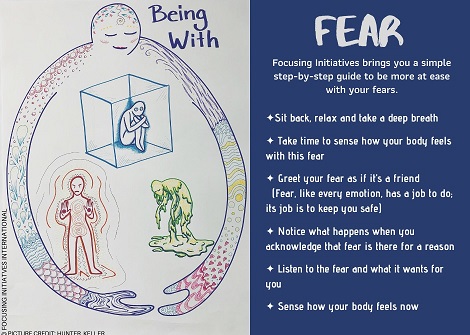

I worked in Liberia when Ebola was on the rise, then again when it was almost gone. As I sit here today thinking about these experiences and about the current warnings about a global pandemic from the coronavirus, I am swept back in time to Liberia.
My work has taken me to war zones and post-war areas where tensions are high and suffering seems to be the norm. In war, you hear gunfire, you see the tracers of weapon fire against the night sky. It’s coming from the north but going to the west, quick, to the bomb shelter! What I discovered through my various forays into Afghanistan under Taliban in the 1990s and then during the US led fighting is that people adapt to war. They adjust their lives to manage living within the violence as best they can.
The threat is unseen and unheard. It lurks all around, and might come slowly, creeping toward you – or it crashes in suddenly as if from nowhere, like a car wreck taking everyone by surprise.
How does one cope, adapt, adjust….? A natural reaction, rooted in our evolutionary history, prompts us to run away, or hide. We turn our backs to the sick person, even violently rejecting outsiders or acting without compassion toward former friends and neighbors. (and you say to yourself as you read this: not me!)
I saw this happen first hand when I was contracted by the World Health Organization to work in Liberia on the Ebola outbreak. Just days after I arrived, the region faced the worst health disaster of its existence. The number of deaths steadily increased to over 100 per day. We heard stories of people locking children int their homes to die of starvation after their parents succumbed to the disease. Rocks were thrown at strangers if they came to get help in a village. I spent 10 months in the country and worked side by side with local people who never knew who in their family would be next to fall ill.
What happened was chaos and fear. Those of us working on the frontlines were also overwhelmed. And our own reactions were strained. How could we stay safe, keep our colleagues safe and still help people? We would drive down the road and see a body lying in the gutter and wonder if she were alive and if we should get help to her since we were told not to try to do this ourselves. If we stopped, what would happen to us? If we didn’t stop, what would happen to the woman? Where was our compassion? I know I felt overwhelmed and in fear of losing my humanity.
And that is what I fear for us now. As the coronavirus (COVID-19) moves into communities, not knowing how or when, people are talking now of little else. Uncertainty grows with the rising numbers of ill and dying, but what is manageable is how we respond when the disease comes near. Naturally, fear is the first response. Yet, if people act only from this fear instead of from their deep humanity, our communities will be torn apart.
Our fear is healthy. It’s how we respond that matters.
First, we have to take time to say hello to the fear that is part of our survival reaction.One Liberian nurse who took care of over twenty family members who had Ebola told me that she was always afraid, but the thing she did with fear was to acknowledge it and keep walking until the fear receded. I think fear kept me safe also. It kept me cautious about touching people. It reminded me to wash my hands often and to observe basic health procedures. My fear was an ally for survival as long as I did not let it take charge.
Fear became a silent partner that allowed me to return again and again to kindness.
So how did I do this? Simply saying hello to fear is a powerful process.
1) Close your eyes.
Begin with the outer body, your hands and your feet. As you sit quietly, be aware of your body…how it rests in the chair. How the air feels on your face. Slowly bring your awareness to your breathing and follow each breath inside. Slow it down and pay attention to your body as you do.
2) Next bring your awareness into the center of your being.
Ask yourself what feels alive and forward moving in your life.
Sense how it feels to be with that forward aliveness inside.
3) When it feels right, maybe you can sense now what your fear is like inside. Sometimes it helps to imagine fear as a friend in need.
Greet your fear as if it’s a friend (fear like any emotion has a job to do and it’s job is to keep you safe).
Take time to sense what it is wanting for you.
Notice what happens when you take time to greet fear as a friend.
Thank your fear for protecting you.
4) Now slowly bring your attention back to your body and the support of the chair, and then back to the room around you.
When you are ready slowly open your eyes.
Now that you have met your fear as a friend, you have opened the way for your compassionate self. You can take care of yourself and tap into that forward aliveness to contribute what you can to the situation we face together.
We are offering a 1.5 hour participatory webinar on March 21, 2020, to explore our fears from a community wellness approach. You can find out more here.
Copyright © 2024 - Focusing Initiatives International, All Right Reserved. - Privacy Policy, how we process your personal data.